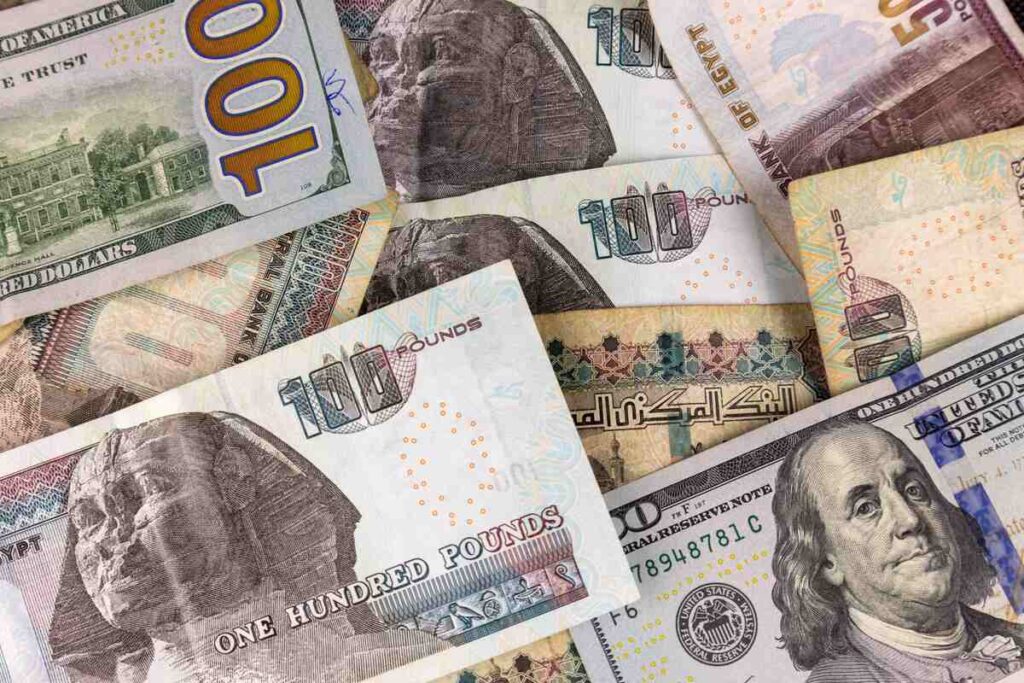Egypt’s Economic Prospects: Revised IMF Agreement Promises New Financial Lifeline
In a significant development amidst escalating economic challenges, Egypt has secured a preliminary agreement with the International Monetary Fund (IMF) to revise the terms of its existing loan arrangement. This agreement includes the immediate devaluation of the Egyptian pound and a considerable increase in the financing program, from the initial $3 billion to potentially $7 billion or more, coupled with an extension of its duration.
Devaluation Drive
A critical component of this agreement is the swift devaluation of the Egyptian pound. This strategic move aims to bridge the gap between the official and parallel market exchange rates against the US dollar. Government sources indicate that Egypt will adopt a managed exchange rate system rather than a fully liberalized one. Adjustments to the exchange rate could be implemented within hours or days, with an official announcement of the expanded agreement anticipated next week.
IMF Program Challenges
Egypt is currently engaged in an extended credit facility program with the IMF worth $3 billion. However, only the first tranche, totaling $350 million, has been disbursed so far. The delay in completing the first and second reviews has led to a program freeze. The IMF’s disbursement of funds hinges on various reforms, including greater exchange rate flexibility and progress in the government tender program. Disagreements over valuations in the parallel market have posed significant setbacks to the program’s timeline.
Growth Forecast Adjustments
In light of recent economic conditions, the IMF has adjusted its growth forecast for Egypt’s economy. The projection for the fiscal year 2023-2024 has been reduced by 0.6 percent, setting the growth rate at 3 percent. Additionally, growth is anticipated to reach 4.7 percent in the following fiscal year, marking a 0.3 percent decrease from earlier estimates. The growing disparity between official and parallel market exchange rates has exacerbated economic complexities, with the pound trading at 30.9 to the dollar in banks, while it surges past 71 pounds on the black market.
Potential Loan Increase
Ongoing discussions between the IMF and the Egyptian government suggest that the existing $3 billion financing package could be increased to as much as $7 billion. Analysts from Fitch Solutions’ BMI even suggest that Egypt’s revised IMF program could reach $8 billion, given the country’s geopolitical significance and concerns about the impacts of global and regional conflicts on its economy. The specifics of these talks are expected to be disclosed later this month.
Path Forward
As Egypt confronts mounting economic pressures due to global and regional uncertainties, the preliminary agreement with the IMF marks a potential turning point. The proposed economic reforms and increased financial support could lay the foundation for sustained economic growth. Nonetheless, success heavily depends on addressing the exchange rate disparities and implementing the crucial reforms stipulated in the IMF program.
The upcoming weeks are pivotal as Egypt inches closer to revealing the details of its revised agreement with the IMF, offering a more defined outlook on the nation’s economic future.
For more news on the economy, click here.
By focusing on the broader implications and providing context, this article aims to give readers a comprehensive understanding of Egypt’s evolving economic situation and the potential impact of the revised agreement with the IMF.
